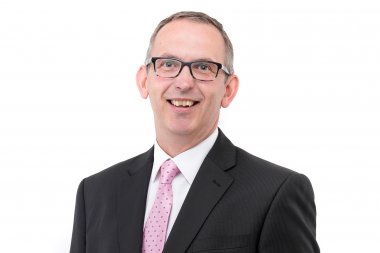
Howard Goodship, chartered financial planner, Ringwood, Hampshire

Lonsdale Wealth Management Ringwood financial planning team offering financial advice to clients in Hampshire
How to combat inflation - the enemy of retirees
Monday 11 November, 2019
Anyone on a fixed income will know the painful effect inflation can have on their expenditure. When the cost of living increases almost every year, one’s standard of living is eroded unless your income is inflation-proofed.
People in retirement are particularly exposed to this risk; inflation really is the silent but clinical assassin of a worry-free retirement!
The Office for National Statistics (ONS) publish a composite price index, showing inflation rates in the UK since 1947. We probably don’t need to plan for over 60 years of inflation during retirement…. but we should be planning for around 30 years. Going back to 1988, the average inflation rate for the most recent 30-year period has been 3.1% per annum. This doesn’t sound high, but it means £10,000 in 1988 would now need to be £26,341 to have the same purchasing power (ie buy the same things).
How will your income in retirement more than double (and almost treble) -What is your plan?
Howard Goodship chartered financial planner, Ringwood, Hampshire said:
‘The state pension currently provides protection against inflation, as do many final salary pension schemes. For some clients the combination of these can help reduce the effects of inflation but they don’t usually cover all expenditure. Often, they cover the basics such as food, heating and bills but what about the enjoyable things people do when retired? Discretionary expenditure may need to be drawn down from a client’s savings. With the current low interest rate environment, capital can quickly be depleted.’
Dividend Yields have historically risen ahead of inflation
The average UK dividend yield has risen by an average of 3.5% per annum for the past 30 years (Source; Link Asset Services). The current average yield on the FTSE All-Share is 3.42% and on the FTSE 100 it is 4.3%, significantly ahead of what can be earned in interest from current accounts and fixed rate bonds.
Howard Goodship, chartered financial planner, Ringwood, Hampshire continued:
‘One of the concerns is the slow down in the global economy, and the effect that might have on dividend payouts. Data provider IHS Market forecast a 3% increase this year in FTSE 100 dividends and a 10% increase in 2020. In addition, a recent study in the US by Hartford Funds highlighted the fact that US corporations have more than doubled the cash on their balance sheets due to the past decade of record profitability. This should bode well for the sustainability of dividend payouts.’
In Summary:
I am not suggesting that investing in dividend paying equity funds is the answer to a secure and happy retirement. Capital values can fluctuate, as can the dividend payments. I believe that there are high quality investment solutions available which, in the right circumstances and for the right client, can help solve this problem experienced by many retirees. Of course, there is still a place for cash, NS&I and other low risk investments, which should form the foundation of a saver’s investment portfolio. But unless you know you have enough capital to last throughout your lifetime, holding only cash or fixed rate investments leaves you fully exposed to the risk of inflation, which compounds annually and is unrelenting.
This article is a part of an Understanding Investments series. To read more from Howard Goodship please review the following:
1 What are Investments and why should you own them?
2 Managing risk and tax to earn a higher return.
4 Tax efficient investment income.
5 What are my pre-retirement options
6 What are your choices at retirement
7 How much money do you need in retirement?
8 Tax efficient saving for grandchildren
9 The value of independent financial advice
The value of an investment and the income from it could go down as well as up. The return at the end of the investment period is not guaranteed and you may get back less than you originally invested. The contents of this article are for information purposes only and do not constitute individual advice.
Latest News Next Article Previous Article


